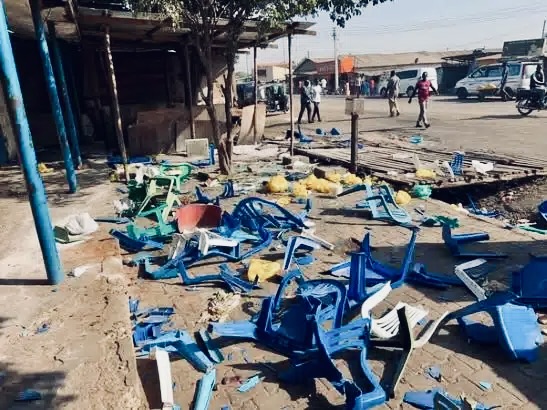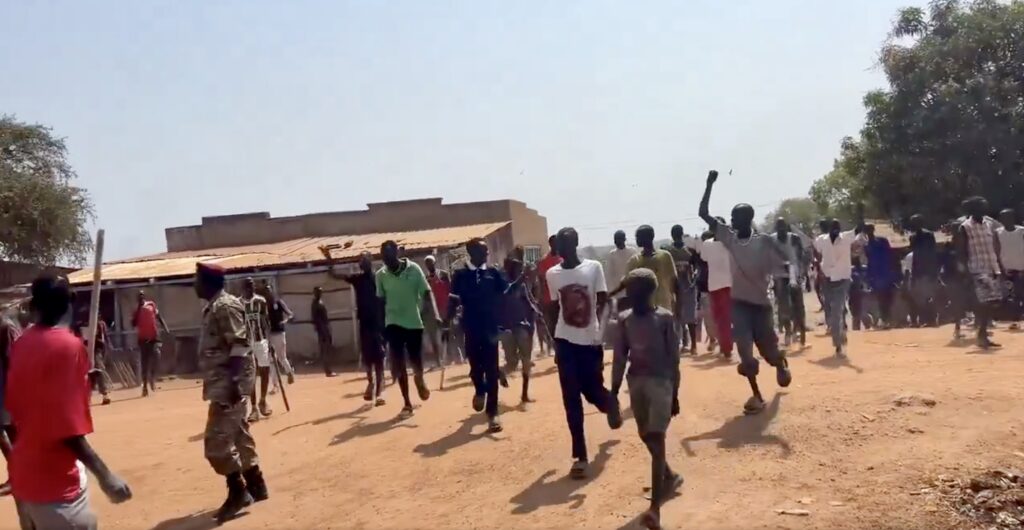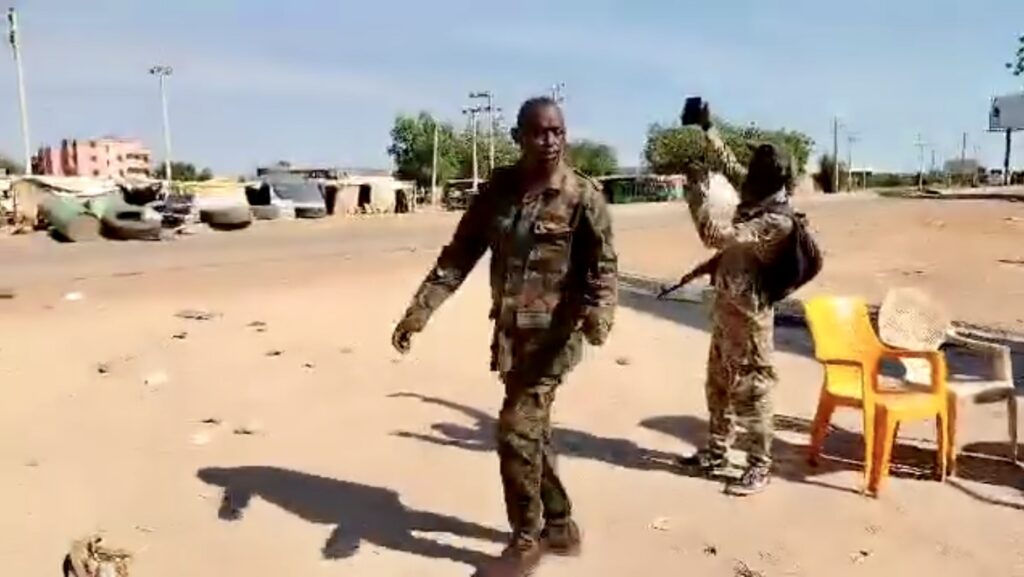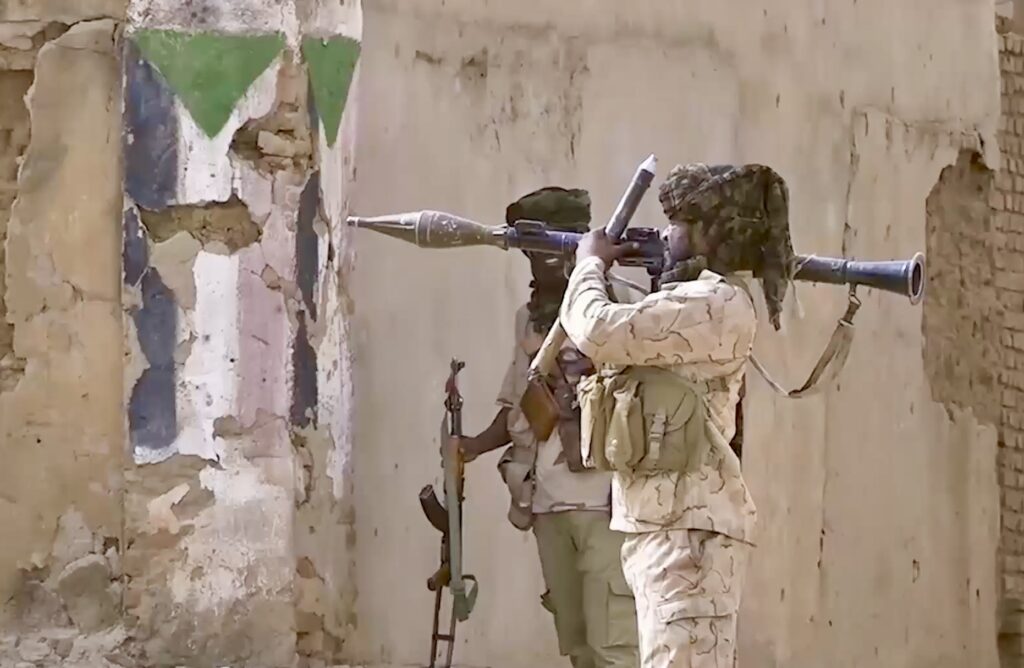Racist rhetoric fuels Sudan-South Sudan tensions
21 January 2024
Tensions have escalated in recent days between Sudan and South Sudan following incidents of mutual violence. The South Sudanese capital, Juba, along with several other cities, witnessed attacks targeting Sudanese residents in retaliation for alleged killings of South Sudanese nationals by Sudanese Armed Forces (SAF) and affiliated militia’s personnel.
Ayin’s recent investigation uncovered numerous attacks in Wad Medani and Kanabi areas in Al-Jazeera State, analysing two videos showing members of the Sudanese Armed Forces killing individuals in civilian clothes under the pretext of collaborating with the paramilitary Rapid Support Forces (RSF).
These attacks later fuelled rising tension, as several South Sudanese officials and citizens reported that South Sudanese nationals were among those killed in the attacks.
Ayin was provided with a list containing the names of 27 South Sudanese individuals allegedly killed in those attacks. The list was shared by Chol Atak, a South Sudanese broadcast journalist. “South Sudanese were slaughtered in Wad Medani,” he told Ayin.

Juba reaction
In response, Juba experienced a wave of violence late last week. Local residents said Sudanese-owned businesses and members of the Sudanese community were attacked and that the violence quickly spread to other towns in South Sudan.
Unconfirmed reports claim at least 2 – 3 Sudanese were killed after South Sudanese citizens started targeting traders Thursday evening.
Sudan’s acting foreign minister of the de facto government in Port Sudan, Ali Yusuf, states in an interview with Ayin that his government is in constant communication with South Sudan following the recent violent events in Wad Medani and the attacks targeting Sudanese residents in South Sudan. He emphasised that they are working closely with South Sudan’s government to manage the crisis and prevent it from jeopardising the future of bilateral relations.
“There are ongoing understandings to ensure justice for all those affected by the violations,” Yusuf said. He added that Sudan’s sovereign council chairman, Lt.-Gen. Abdel Fattah al-Burhan, has formed a committee to investigate those responsible for the violations in Al-Jazeera State, assuring that they will be held accountable before the law.

Yusuf also acknowledged the developments in Juba and other South Sudanese cities over the past two days. “The situation is still under monitoring, and efforts to contain the crisis are continuing,” he stated.
South Sudan government officials announced a 12-hour curfew to quell the violence and President Salva Kiir called for calm and urged an immediate cessation of attacks on Sudanese nationals in Juba and other cities.
“Sudanese in Juba have not committed any crimes in Medani,” Angelina Teny, Minister of Interior, stated in a press conference, “The curfew will remain in place until we are sure the situation is fully stabilised.”.

Hate speech and ethnic discrimination
The recent mutual attacks have not only intensified the crisis but have also led to a surge in racist rhetoric and hate speech, with dangerous consequences from both sides. As reports of violence emerged, influential figures, including public figures and social media activists, began disseminating inflammatory messages, calling on their respective communities to retaliate. These calls for vengeance have been rooted in deep-seated ethnic prejudice and historical grievances, further polarising the population of Sudan and South Sudan.
The rhetoric often painted entire communities with broad strokes, blaming ethnic or national groups for the actions of individuals, which exacerbated existing tensions. On social media, platforms became breeding grounds of proactive content, with hashtags, videos, and posts spreading misinformation and inciting violence. This wave of hate speech has not only incited immediate retaliation but also created an environment of fear and mistrust, making reconciliation efforts more challenging.
“Assigning blame to a single group provides a simple and immediate answer, allowing them to shift from pain to blame as a way of coping” says Achai*, a South Sudanese human rights activist. “When we simplify things by assigning blame to an entire ethnic or national group, we fail to identify the root causes,” she added. “ While we can and should have conversation about our individual responsibility to each other, such as recognizing each other’s humanity, addressing societal racism, and acknowledge privileges”.
She emphasized that new and old wounds need to be addressed and conversations should not start at accountability.

Ayin previously conducted an investigation into foreign mercenaries fighting alongside the RSF, later confirming the presence of mercenaries, including South Sudanese nationals. Lt.-Gen Yasser al-Atta alluded to this recently having accused South Sudanese authroties of not taking action aginst South Sudanese mercenaries joining the Rapid Support Forces.
However, many peace activists argue it is important to note that the involvement of these mercenaries should not serve as a justification for attacks on South Sudanese communities in Sudan, nor should the actions of SAF and allied militias be used as a reason to target Sudanese residents and refugees in South Sudan.
Dallia Abdelmoniem, a Sudanese political analyst, emphasised that there is never any justification for summary executions, whether of mercenaries or supporters of any side. She pointed out that collective punishment against innocent individuals, based on ethnic and racial backgrounds, is unacceptable. “The SAF and its allies cannot denounce violations committed by RSF and their militias, only to commit the same atrocities themselves,” she added.
The rise of such divisive narratives highlights how unresolved historical wounds between two nations are easily exploited in times of crisis. As both governments struggle to address the immediate fallout of this violence, activists told Ayin, the unchecked spread of hate speech continues to erode trust, pushing the fragile relationship between Sudan and South Sudan further toward the brink.


